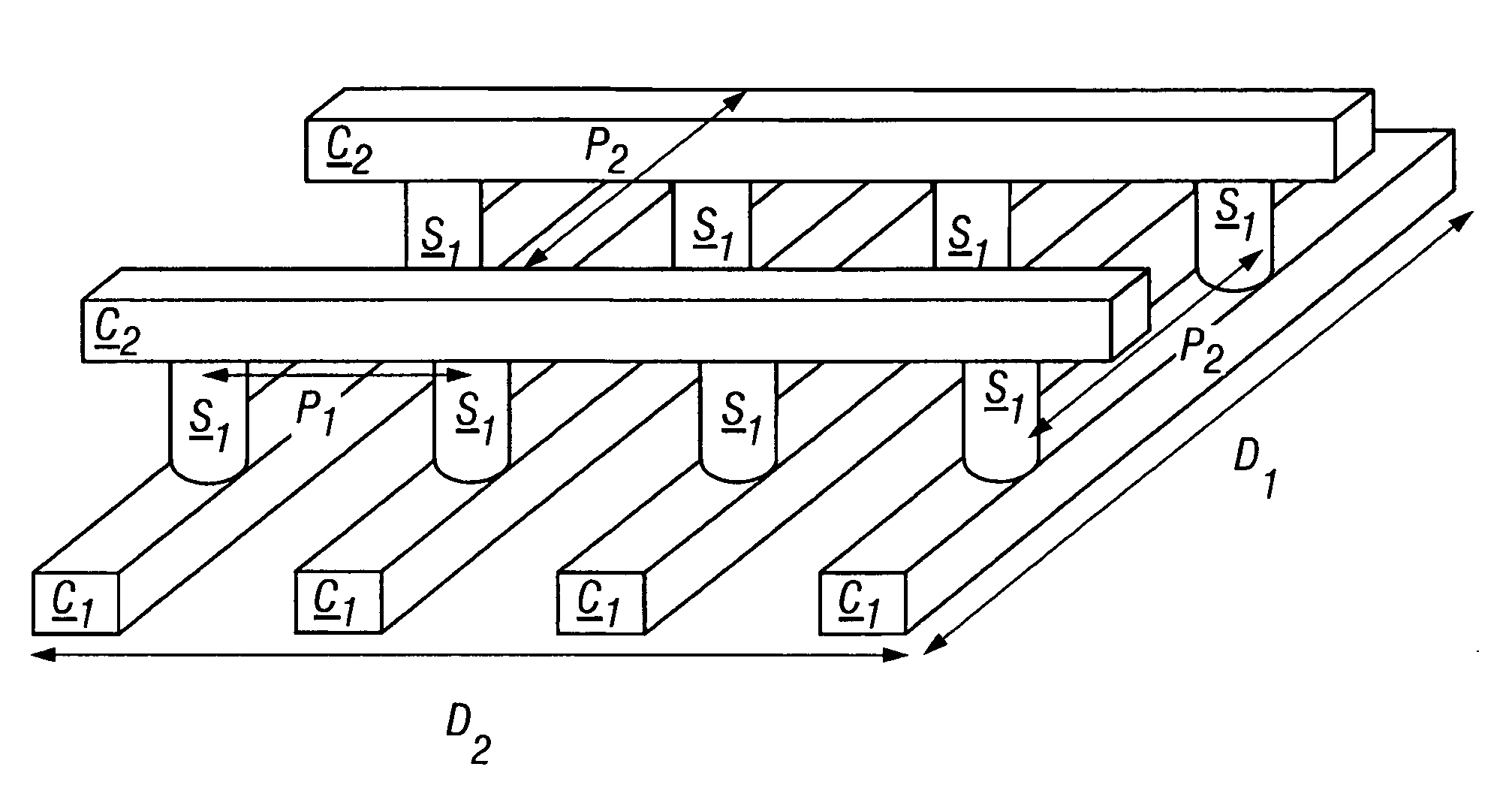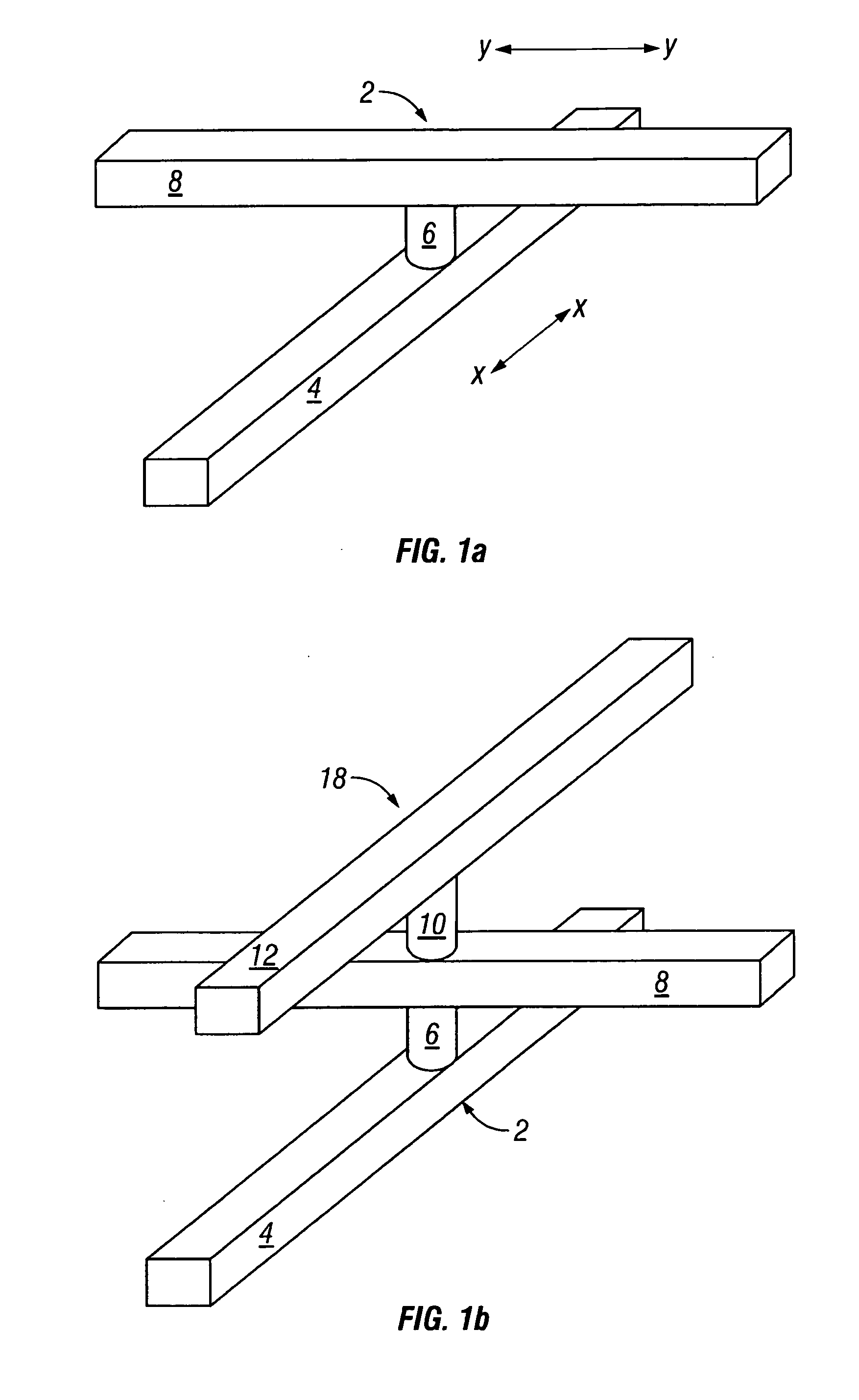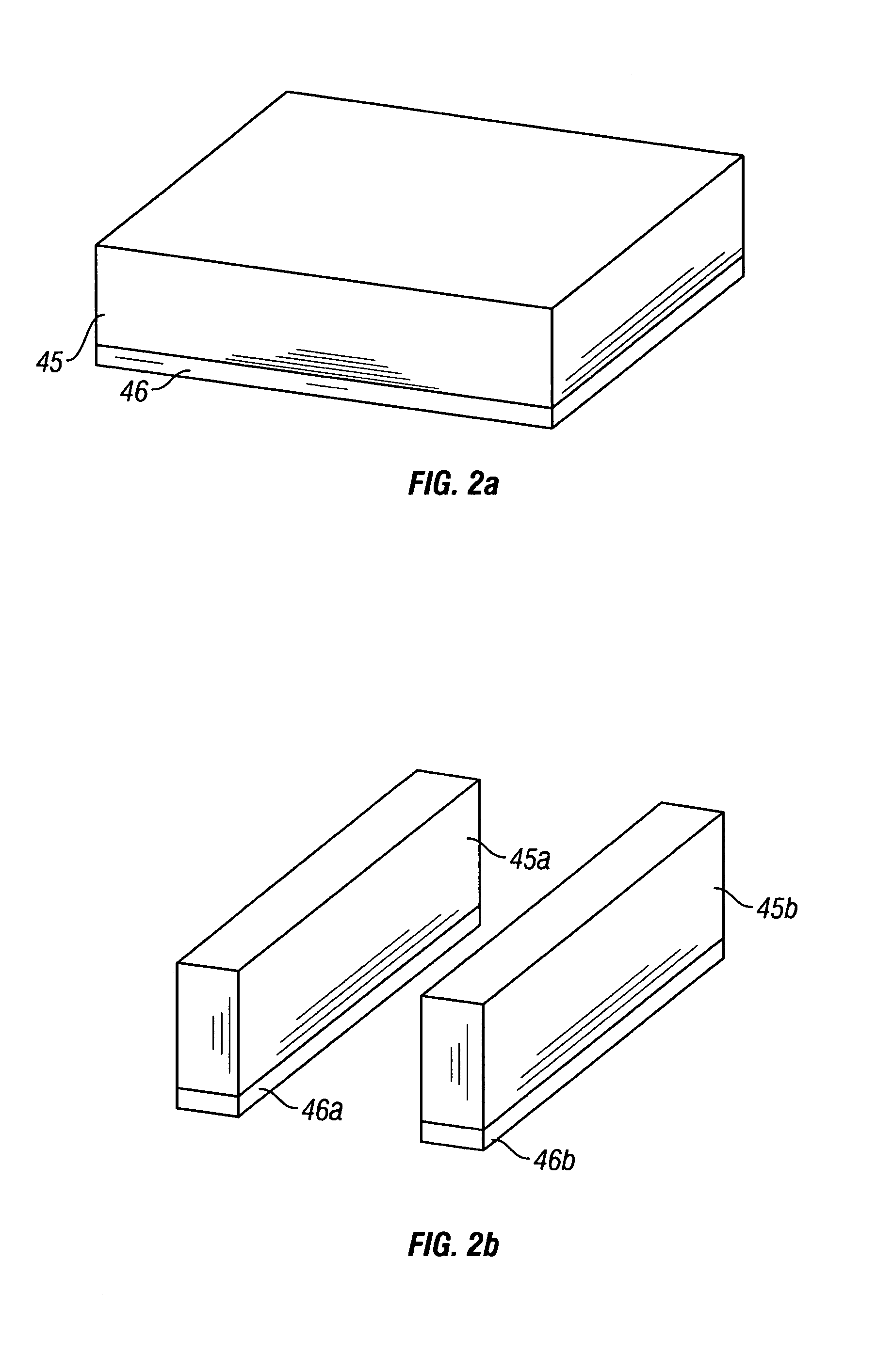Method for making high density nonvolatile memory
- Summary
- Abstract
- Description
- Claims
- Application Information
AI Technical Summary
Benefits of technology
Problems solved by technology
Method used
Image
Examples
Embodiment Construction
[0022] Johnson et al. and Knall et al. both disclose monolithic three dimensional memories which provide for high density memory arrays. The present invention provides for creation of a monolithic three dimensional memory with a structure similar to those disclosed in Johnson et al., but uses a different method of fabrication and different choice of materials, allowing for improved density, performance, and ease of manufacture.
[0023] The structure of a single memory cell 2 of the present invention is illustrated in FIG. 1a. At the bottom is conductor 4. Above conductor 4 is semiconductor element 6, and above that is conductor 8. In the present invention, semiconductor element 6 is substantially cylindrical, for reasons that will be described below. The memory cell of Johnson et al. has a similar structure, but its semiconductor element, called a pillar, is not substantially cylindrical. Turning to FIG. 1b, in both the memory of Johnson et al. and the present invention, another semi...
PUM
 Login to view more
Login to view more Abstract
Description
Claims
Application Information
 Login to view more
Login to view more - R&D Engineer
- R&D Manager
- IP Professional
- Industry Leading Data Capabilities
- Powerful AI technology
- Patent DNA Extraction
Browse by: Latest US Patents, China's latest patents, Technical Efficacy Thesaurus, Application Domain, Technology Topic.
© 2024 PatSnap. All rights reserved.Legal|Privacy policy|Modern Slavery Act Transparency Statement|Sitemap



